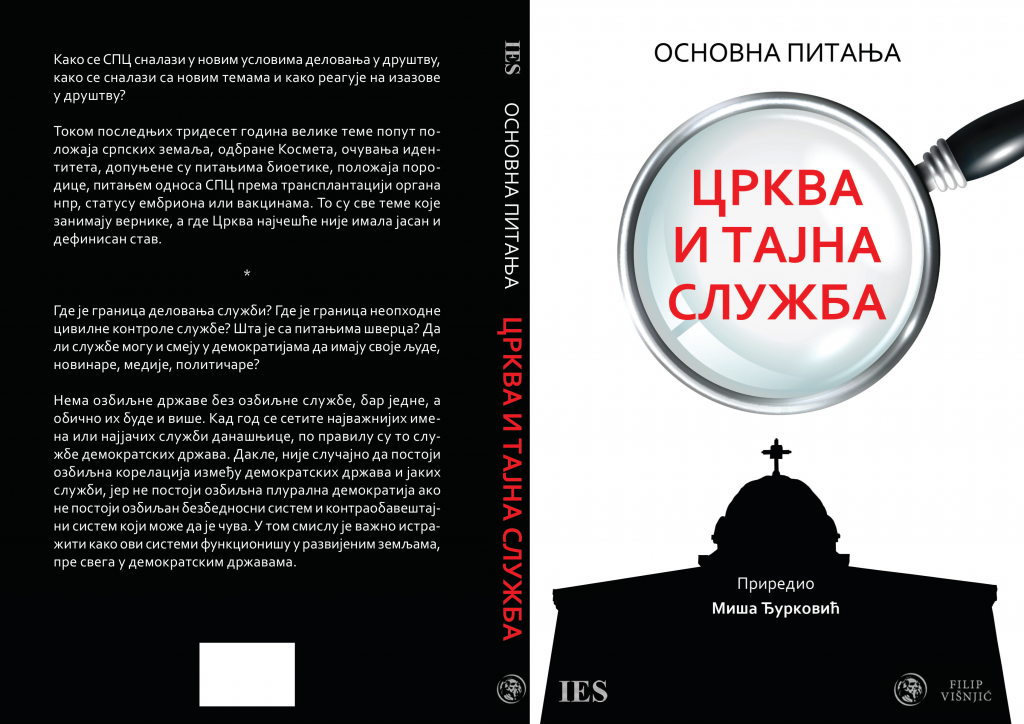The new edition of the Institute of European Studies includes presentations from two last year’s conferences on the position of the Serbian Orthodox Church today and on the role of secret services in democratic societies. Instead of written papers, we received concise and focused policy analysis, which resulted in 150 pages of extremely useful and up-to-date material.
How does the Serbian Orthodox Church cope with the new conditions of action in society, how does it cope with new topics and how does it react to challenges in society? During the last thirty years, major topics such as the position of Serbian countries, the defense of Kosovo and Metohija, the preservation of identity, have been supplemented by issues of bioethics, status of the family, the SOC’s attitude towards organ transplantation, for example, embryo status or vaccines. These are all topics that interest believers, and where the Church usually did not have a clear and defined position.
Where is the limit of service operation? Where is the limit of the necessary civilian control of the service? What about smuggling issues? Can and can services in democracies have their own people, journalists, media, politicians?
There is no serious state without a serious service, at least one, and there are usually more. Whenever one remembers the most important names or the strongest services of today, as a rule, they are the services of democratic states. So it is no coincidence that there is a serious correlation between democracies and strong services, because there is no serious plural democracy if there is no serious security system and counter-intelligence system that can guard it. In this sense, it is important to explore how these systems work in developed countries, primarily in democracies.

